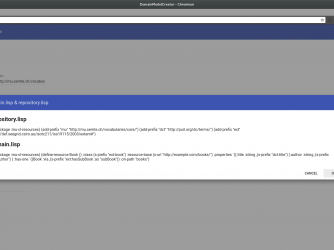Microservices make it easy to reuse logic across applications. You can easily share the logic between applications by sharing the full microservice. But there’s a…
Authorization is a cross-cutting concern*. By carving out the pieces each component needs to know, we minimize dependencies, maximize code-reuse, and make the system easy…
Last February I was lucky enough to be able to give a presentation on the grand ballroom stage at one of the bigger developer conferences…
Long awaited, but it’s finally there: a README for the mu-cl-resources service. Get to know all features (there are a lot!) of our microservice producing…
Web applications oftentimes require a user to be authenticated to access (part of) their application. For example a webshop may require a user to be…
Many developers use MacOS on their daily basis. With our Docker background, we’ve mainly focused on Linux support. That is about to change, MacOS is…
In a previous blog post we explained how to host an EmberJS application in nginx with a backend API. First, we had to build the…
The problem with most triple stores is … they tend to be slow. At least slow compared to their schema-full counterparts. It seems the cost…
The mu.semte.ch stack relies on Docker as it perfectly suites a microservice architecture. We don’t only use it for deployment, but also for development. By…
creating models can be tedious Since creating models is generally writing a lot of text it can be tedious and time consuming. Therefor we are…







